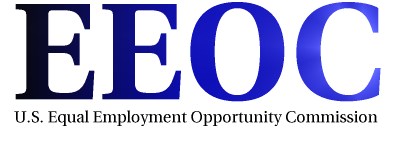Challenge and Defeat EEOC Subpoenas
Title VII of the Civil Rights Act of 1964 permits the Equal Employment Opportunity Commission (EEOC) to issue subpoenas to obtain evidence that is relevant to a pending investigation of discrimination on the basis of protected grounds from employers. The statute then authorizes a district court to issue an order enforcing such a subpoena.
In McLane Co. Inc. v. EEOC, Ochoa was employed by McLane to complete tasks which were physically exhausting. McLane required all employees, both new and returning, to complete a physical fitness evaluation to ensure fitness for work. Upon return from a three (3) month maternity leave, Ochoa attempted and failed the fitness evaluation three times. Her employment was terminated.
Ochoa filed a sex discrimination charge which the EEOC attempted to investigate, however, it was unable to access the names, Social Security numbers, addresses, and telephone numbers of thousands of McLane applicants and employees that had been asked to take the same fitness evaluation. The EEOC issued subpoenas for this information, but McLane was not forthcoming. The EEOC then brought an action to enforce its subpeonas to the Federal District Court. The District Court declined to enforce the subpoenas stating that the requested information was irrelevant to the case, prompting an immediate appeal to the Ninth Circuit Court. The Ninth Circuit ultimately determined that the lower court erred in finding the information irrelevant and agreed to enforce the subpoenas.
On appeal to the Supreme Court of the United States, the subpoenas were once again set aside on the basis that a district court’s decision whether to enforce or quash an EEOC subpoena should be reviewed for abuse of discretion only and not de novo, meaning “anew”. Its reasons were:
- the abuse of discretion standard is “the longstanding practice of the courts of appeals” in such matters as EEOC and NLRB agency subpoenas;
- enforcement of subpoenas is determined by whether the information sought is relevant or whether the subpoena is unduly burdensome, which are both issues that the district courts have the expertise to review;
- deferential treatment of the district court’s decisions in such cases “streamline[s] the litigation process by freeing appellate courts from the duty of reweighing evidence and reconsidering facts already weighed and considered by the district court”.
For employers, this case highlights the importance of a comprehensive and well-prepared response to EEOC subpoenas at the initial stages and at the district court. Being the trial court, it will always be more familiar with facts and parties that are actually relevant in the charge and thus be less likely to enforce an over-broad subpoena. Once the battle is lost at this front, the likelihood of obtaining a favorable reversal at the circuit court has just been greatly diminished.
By subpoena the EEOC may legitimately request broad batches of information pertaining not only to current employees but to applicants and former employees alike. The more intently the EEOC investigates with this magnitude of information, the greater the risk of liability for any employer. Thus, employers should consult with experienced counsel to successfully challenge and defeat EEOC subpoenas at the right opportunity.


Comments are closed.